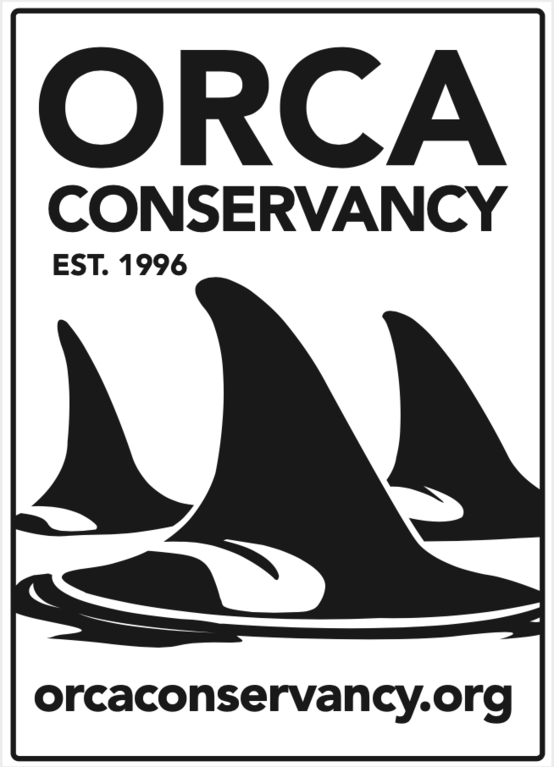ACTION ALERT: Help Protect NOAA from Federal Cuts
Contact your Congressional Representatives and urge them to support critical funding for NOAA
Member of the T124As spy hopping in front of NOAA vessel
What is happening and why it matters?
On February 27, 2025, the Department of Government Efficiency (DOGE), established under the Trump administration, terminated approximately 880 NOAA employees accounting for over 7% of the workforce. NOAA, which stands for the National Oceanic and Atmospheric Administration, is the lead federal agency that is responsible for monitoring weather and climate, managing oceans and coasts, and overseeing the protection and recovery of animals listed in the Endangered Species Act.
In addition to reducing staffing of vital programs within NOAA, DOGE is also recommending the termination of leases for key NOAA facilities as well as cuts to funding for programs and contracts which includes marine research.
How will this impact orcas and salmon?
The Southern Resident killer whales are critically endangered, and as of this writing, only 73 individuals are remaining. NOAA is the federal agency responsible for enforcing the Endangered Species Act (ESA), which helps protect these whales by addressing threats like habitat destruction, prey availability, and pollution.
NOAA plays an important role and supports salmon recovery programs, management of fisheries, and enforces vessel regulations that help mitigate noise and harassment to orcas and other cetacean populations. Budget cuts will weaken these programs, making it more difficult to protect and recover the Southern Residents and their main food source, Chinook salmon.
The recent DOGE cuts and terminations are already being felt in the efforts to protect the wild orca populations of the Pacific Northwest. The former Natural Resource Specialist with NOAA, whom Orca Conservancy worked with throughout the killer whale deterrence training during the summer of 2024, was one of the terminated NOAA employees.
While this role is expected to be assigned to the remaining staff, we at Orca Conservancy are concerned about the careless nature of these firings and the impact it will have on recovery and emergency response efforts. We also have concerns that with the budget cuts and terminations, employees will be underfunded and lacking resources to execute their jobs efficiently, which could be a devastating blow to a scope of projects and efforts including emergency response.
How to contact your Congressional Representatives:
You can email and call your representatives to urge them to urge Congress to protect NOAA and restore funding. If you can, we strongly recommend a phone call, as this tends to have a greater impact than an email, petition, or pre-written script. Some agencies have a set standard that deems any issue that receives over 10 phone calls a “high priority”.
Below, you will find the phone number and email that you can contact, followed by suggested talking points and tips on how to submit your comment.
Find your local representative’s contact information by searching your address here: https://www.congress.gov/members/find-your-member
Or call (202) 224-3121 to reach the Capitol switchboard and ask to be connected to your Senator or Representative.
Tips for public comment:
Be respectful and polite in your comments, emails, or phone calls.
Get personal, share your experiences, and why you care. Personal messages carry more sentiment and weight which are more meaningful and can have a bigger impact on policymakers.
Avoid pre-written copy-and-paste templates. New practices make it so pre-written templates only get counted once. Meaning if multiple people submit the same comment, letter, or email, it will only be recorded once. Make it personal and unique to make sure it is counted.
Cite relevant data that supports your comment.
Suggested talking points:
Budget cuts could halt critical conservation programs, worsening food shortages for the critically endangered Southern Resident killer whales, further pushing them closer to extinction.
NOAA leads recovery efforts under the Endangered Species Act, including habitat restoration, hatchery management, and fisheries regulation to ensure Chinook salmon populations can sustain SRKWs. Cutting funding and employees risks jeopardizing these efforts, which will add another nail to the coffin.
NOAA provides life-saving weather forecasts for extreme events like hurricanes, wildfires, tsunamis, and coastal flooding, which are essential for emergency responders, farmers, and small businesses.
NOAA monitors climate change and ocean health, which affect coastal communities, fisheries, and infrastructure. Cuts could slow scientific research needed to address rising sea levels and ecosystem shifts.
NOAA enforces regulations on vessel traffic and noise pollution, which disrupt SRKWs’ ability to hunt and communicate. A weakened NOAA means fewer protections for these whales.
The agency is responsible for toxic pollution monitoring in Puget Sound, where contaminants harm both orcas and their food supply. Cuts to NOAA reduce enforcement against polluters.

